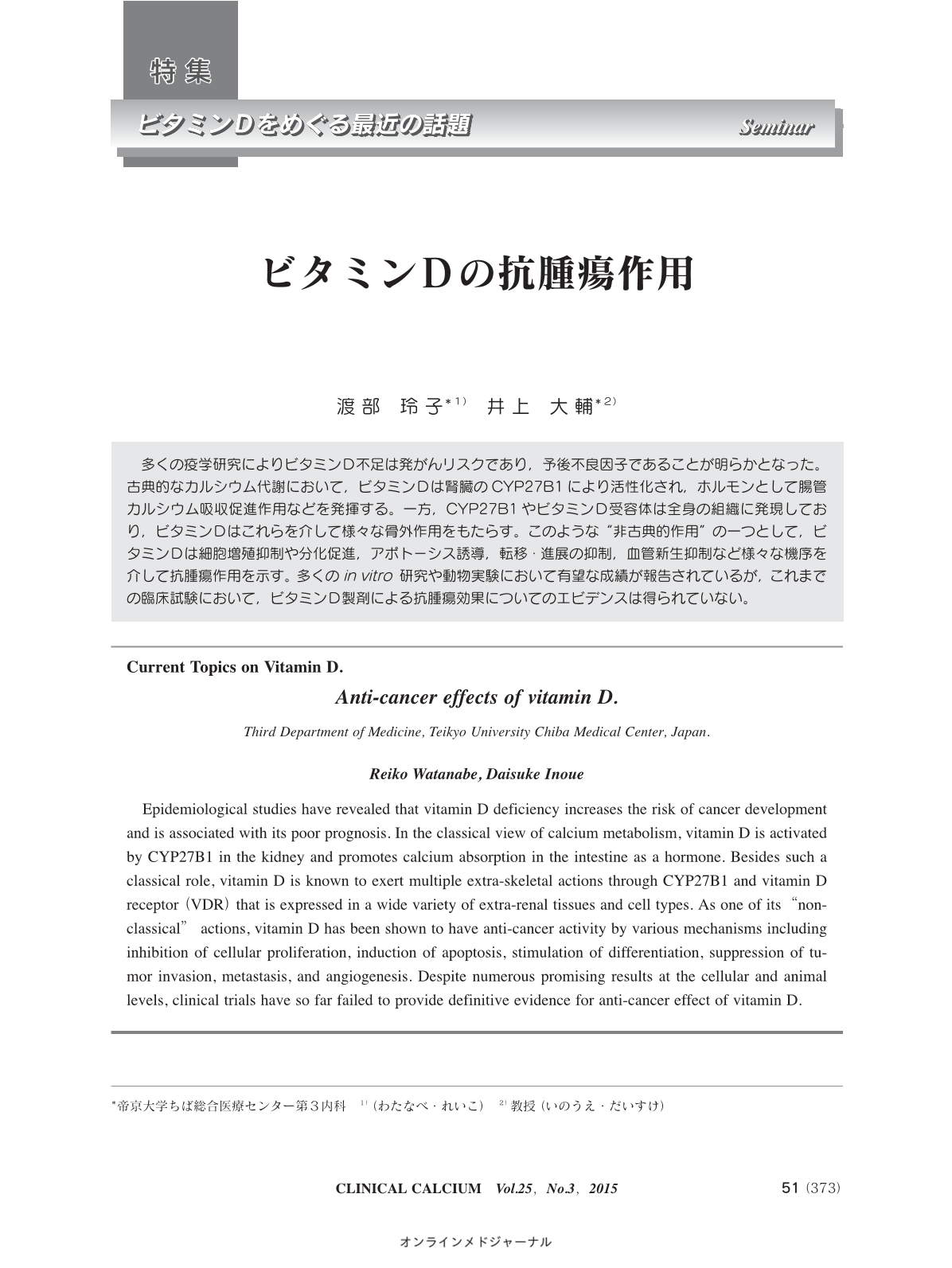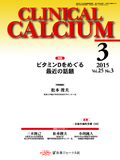Japanese
English
- 有料閲覧
- Abstract 文献概要
- 1ページ目 Look Inside
- 参考文献 Reference
多くの疫学研究によりビタミンD不足は発がんリスクであり,予後不良因子であることが明らかとなった。古典的なカルシウム代謝において,ビタミンDは腎臓のCYP27B1により活性化され,ホルモンとして腸管カルシウム吸収促進作用などを発揮する。一方,CYP27B1やビタミンD受容体は全身の組織に発現しており,ビタミンDはこれらを介して様々な骨外作用をもたらす。このような“非古典的作用”の一つとして,ビタミンDは細胞増殖抑制や分化促進,アポトーシス誘導,転移・進展の抑制,血管新生抑制など様々な機序を介して抗腫瘍作用を示す。多くのin vitro研究や動物実験において有望な成績が報告されているが,これまでの臨床試験において,ビタミンD製剤による抗腫瘍効果についてのエビデンスは得られていない。
Epidemiological studies have revealed that vitamin D deficiency increases the risk of cancer development and is associated with its poor prognosis. In the classical view of calcium metabolism, vitamin D is activated by CYP27B1 in the kidney and promotes calcium absorption in the intestine as a hormone. Besides such a classical role, vitamin D is known to exert multiple extra-skeletal actions through CYP27B1 and vitamin D receptor(VDR)that is expressed in a wide variety of extra-renal tissues and cell types. As one of its “non-classical” actions, vitamin D has been shown to have anti-cancer activity by various mechanisms including inhibition of cellular proliferation, induction of apoptosis, stimulation of differentiation, suppression of tumor invasion, metastasis, and angiogenesis. Despite numerous promising results at the cellular and animal levels, clinical trials have so far failed to provide definitive evidence for anti-cancer effect of vitamin D.



